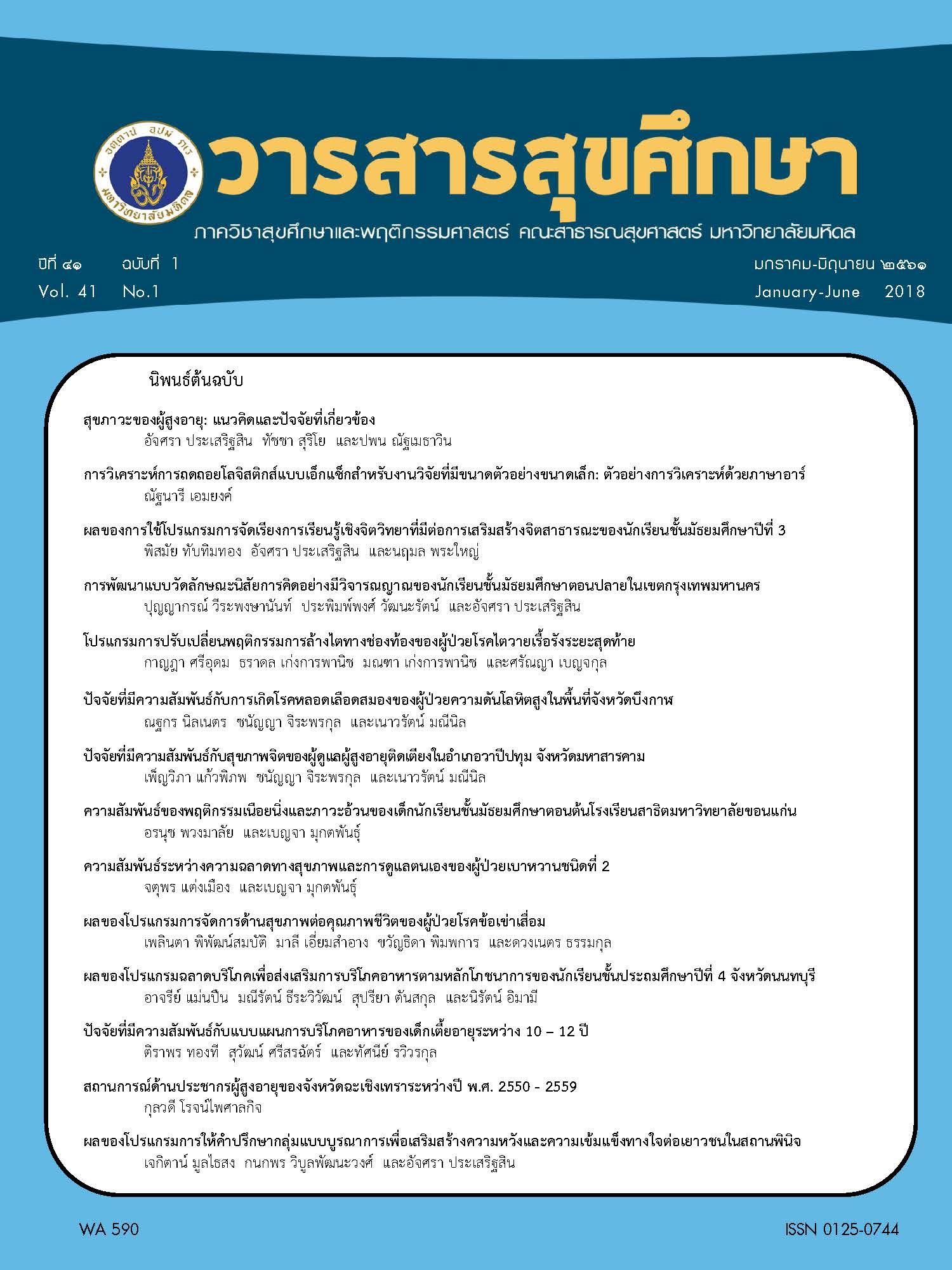Well-Being of Elderly People: The Various Concepts and Factors Involved
Keywords:
Well-being, Elderly peopleAbstract
Well-Being refers to individual can be expressed by suitable social role. Able to work effectively. Able to adapt to the situation and environment. A condition in which individuals recognize on the situation it is to feel happy. Whether happiness is caused by external or inner happiness. Individual have quality of life, optimistic, life satisfaction, wealth of physical and mental, good of emotion and environment. The concepts associated with the well-being of the elderly as follows. 1) The perceived wellness model by Adams 2) Wheel of wellness model by Myers 3) Buddhist holistic health 4) Hedonic & eudaimonic perspectives and 5) Six-factor model of psychological well-being by Ryff. The elderly will be in good health or not depends on several factors, as follows: internal factors include the physical function, physical capability, mental capability having a, good physical and mental health, self-esteem, optimistic, meaning of life, autonomy, quality of life, loneliness, depression and external factors include the voluntariness of retirement, physical activity, security, lifestyle, religion (in developing countries), social support, social network, social activities, income, marriage, education, local residential and transportation convenience. If a person takes pleasure to recognize and adapt to the situation, this shows that people are more likely to have well-being. So the study about the concepts and factors related to the well-being of the elderly people. It is a way for the person concerned can apply to the appropriate activities to care for the elderly. And push policy to promote the well-being of the elderly with better quality of life.



